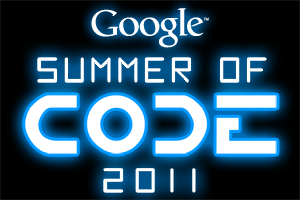
To read my blog about my participation in the GSoc 2012, click here.
I participated the GSoC 2012 for SHOGUN! The project I worked on was closely related to my Master’s project at UCL. It is about kernel based statistical tests. My host ist Arthur Gretton, lecturer with the Gatsby Computational Neuroscience Unit, part of the Centre for Computational Statistics and Machine Learning at UCL, who I met there during my studies.
Abstract: Statistical tests for dependence or difference are an important tool in data-analysis. However, when data is high-dimensional or in non-numerical form (strings, graphs), classical methods fail. This project implements recently developed kernel-based generalizations of statistical tests, which overcome this issue. The kernel-two-sample test based on the Maximum-Mean-Discrepancy (MMD) tests whether two sets of samples are from the same or from different distributions. Related to the kernel-two-sample test is the Hilbert-Schmidt-Independence criterion (HSIC), which tests for statistical dependence between two sets of samples. Multiple tests based on the MMD and the HSIC are implemented along with a general framework for statistical tests in SHOGUN.
My proposal can be found here. SHOGUN got 8 student slots, compared to 5 in 2011, so this summer was a major boost in SHOGUN development. Check out the cool others’ students projects here.
 I participated in the GSoC 2011 for the SHOGUN machine learning toolbox (
I participated in the GSoC 2011 for the SHOGUN machine learning toolbox (